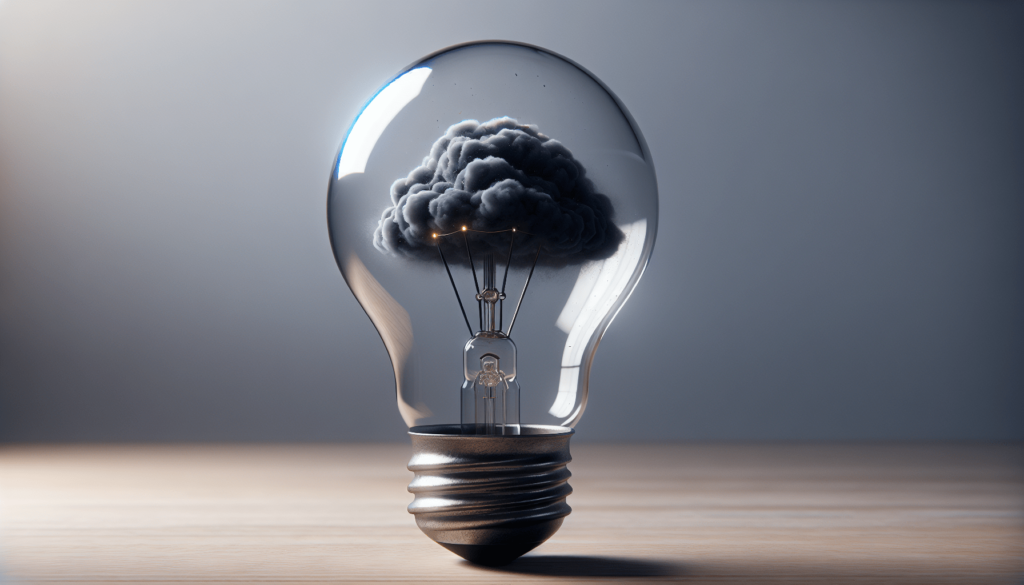What Does Brain Fog Feel Like?
Introduction
Ever find yourself struggling to concentrate, feeling mentally cloudy, or experiencing difficulty remembering things? You might be experiencing brain fog. In this article, we will explore what brain fog feels like, its potential causes, and some strategies to help clear the fog and regain mental clarity.
What is Brain Fog?
Brain fog is a term used to describe a feeling of mental cloudiness or lack of mental clarity. It can make it difficult to focus, concentrate, remember information, and even carry out day-to-day tasks efficiently. Many people experience brain fog at some point in their lives, but for some, it can be a chronic issue.
What Does Brain Fog Feel Like?
Imagine trying to think through a thick foggy haze, where your thoughts seem sluggish and unclear. It’s like having a mental traffic jam, where your brain struggles to process information and make decisions. Brain fog can make you feel like you’re not operating at your usual mental capacity, leaving you frustrated and fatigued.
Common Symptoms of Brain Fog
Brain fog can manifest in various ways, and its symptoms can differ from person to person. Here are some common symptoms associated with brain fog:
| Symptoms of Brain Fog |
|---|
| Difficulty concentrating |
| Memory problems |
| Lack of mental clarity |
| Fatigue or tiredness |
| Confusion or disorientation |
Recognizing Brain Fog Symptoms
If you find yourself experiencing any of these symptoms regularly, it might be a sign that you’re dealing with brain fog. It’s essential to pay attention to these signs and address them to improve your cognitive function and overall well-being.
Potential Causes of Brain Fog
Brain fog can have several underlying causes, ranging from lifestyle factors to medical conditions. Understanding these potential causes can help you pinpoint what might be contributing to your brain fog. Here are some common reasons for brain fog:
Stress
Chronic stress can have a significant impact on your cognitive function and contribute to brain fog. When your body is in a constant state of stress, it can affect your ability to focus, remember things, and think clearly. Finding ways to manage and reduce stress is crucial for combating brain fog.
Lack of Sleep
Sleep plays a vital role in cognitive function and memory consolidation. If you’re not getting enough quality sleep, it can lead to brain fog and impaired mental performance. Prioritizing good sleep hygiene and ensuring you get enough restful sleep each night can help alleviate brain fog.
Poor Diet
Nutrition plays a crucial role in brain health, and a poor diet lacking essential nutrients can contribute to brain fog. Diets high in processed foods, sugar, and unhealthy fats can negatively impact cognitive function and mental clarity. Eating a well-balanced diet rich in fruits, vegetables, whole grains, and lean proteins can support brain health and reduce brain fog.
Dehydration
Even mild dehydration can affect your cognitive function and mood. When your body lacks proper hydration, it can lead to difficulty concentrating, mental fatigue, and brain fog. Staying properly hydrated by drinking enough water throughout the day is essential for maintaining optimal brain function.
Sedentary Lifestyle
Physical activity is not only beneficial for your physical health but also your mental well-being. A sedentary lifestyle can contribute to brain fog by reducing blood flow to the brain and limiting the release of feel-good chemicals called endorphins. Incorporating regular exercise into your routine can help improve cognitive function and combat brain fog.
Medical Conditions
Certain medical conditions can also contribute to brain fog, such as:
- Chronic fatigue syndrome
- Fibromyalgia
- Hypothyroidism
- Depression
- Anxiety If you suspect that an underlying medical condition is causing your brain fog, it’s essential to consult with a healthcare professional for proper diagnosis and treatment.
Strategies to Clear Brain Fog
While dealing with brain fog can be frustrating, there are several strategies you can implement to help clear the fog and improve your mental clarity. Here are some tips to consider:
Prioritize Self-Care
Taking care of your overall well-being is crucial for combating brain fog. Make sure to prioritize self-care activities such as getting enough restful sleep, eating a balanced diet, staying hydrated, managing stress, and engaging in regular physical activity. Self-care practices can help support optimal brain function and mental clarity.
Practice Mindfulness
Mindfulness techniques, such as meditation and deep breathing exercises, can help calm the mind, reduce stress, and improve focus. Incorporating mindfulness practices into your daily routine can enhance cognitive function and alleviate brain fog.
Stay Organized
Maintaining a structured routine and staying organized can help reduce mental clutter and improve cognitive function. Use tools such as calendars, to-do lists, and reminders to keep track of tasks and appointments. Breaking down tasks into manageable chunks can also make them feel less overwhelming and enhance productivity.
Limit Distractions
In today’s digital age, we are constantly bombarded with distractions that can hinder our ability to focus and concentrate. Limiting distractions, such as turning off notifications on your phone or finding a quiet workspace, can help improve your mental clarity and productivity.
Get Moving
Physical activity has numerous benefits for both your physical and mental health. Engaging in regular exercise can increase blood flow to the brain, boost mood-enhancing chemicals, and enhance cognitive function. Whether it’s a brisk walk, yoga, or strength training, finding a physical activity you enjoy can help combat brain fog.
Seek Professional Help
If your brain fog persists despite trying various strategies, it may be beneficial to seek professional help. A healthcare provider, such as a doctor or mental health professional, can help identify the underlying cause of your brain fog and recommend appropriate treatment options. Don’t hesitate to reach out for support if you’re struggling to clear the fog on your own.
Conclusion
Brain fog can significantly impact your daily life, making it challenging to focus, remember information, and think clearly. By understanding what brain fog feels like, recognizing its symptoms, identifying potential causes, and implementing strategies to clear the fog, you can regain mental clarity and improve your cognitive function. Remember to prioritize self-care, practice mindfulness, stay organized, limit distractions, get moving, and seek professional help if needed. With proactive efforts and support, you can effectively combat brain fog and enhance your overall well-being.



